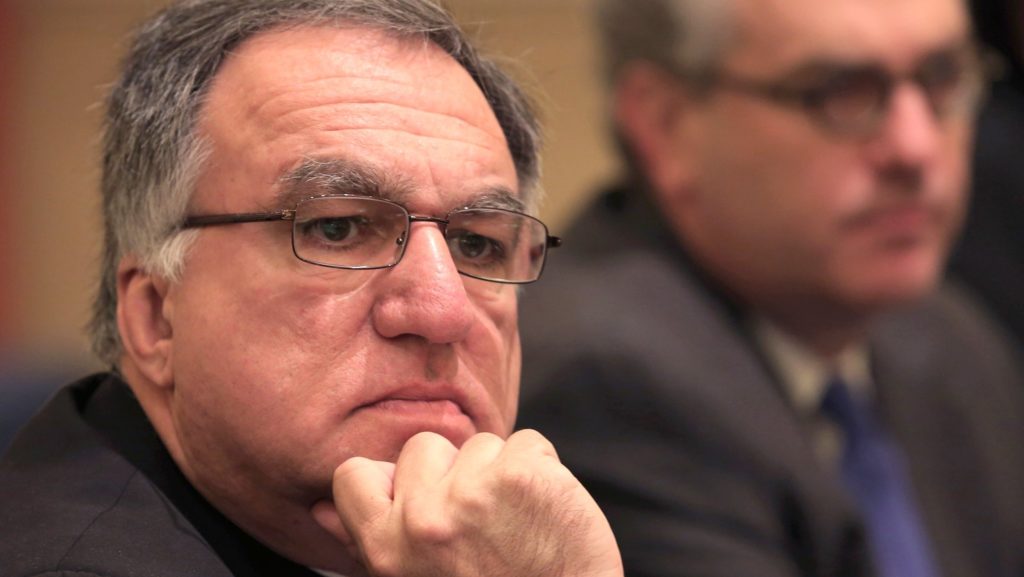A Canadian court has ruled a Basilian priest can continue his civil suit against fellow Basilian Father Thomas Rosica and the Basilian Fathers of Toronto, with the plaintiff, Father Michael Bechard, seeking damages for alleged sexual abuse by Father Rosica.
Father Bechard has also filed a complaint under "Vos Estis Lux Mundi," Pope Francis' 2019 motu proprio governing the reporting of alleged sexual abuse involving clergy, religious and bishops.
In a September 2024 statement to OSV News, the Diocese of London, Ontario -- which is not named in Father Bechard's lawsuit -- stressed that Bishop Ronald Fabbro, to whom Father Bechard had complained in 2015 about the abuse, denied any allegations of failing to act. Instead, said the diocese, Bishop Fabbro had advised Father Bechard that "the correct course of action was to contact the Congregation of St. Basil so they could begin an investigation."
Father Rosica, who was a Vatican media expert, founder of a prominent Canadian national Catholic television network, and organizer of the 2002 Toronto World Youth Day, has denied any improper conduct and has maintained his innocence. He and the Basilian Fathers urged the court to stay the lawsuit, arguing the allegations should play out instead in a canonical court of the Catholic Church.
But in an Aug. 7 decision, Justice Evelyn ten Cate of the Ontario Superior Court of Justice held that Father Bechard's legal action, filed in March 2024, could proceed in the civil justice system despite those objections.
"In short, there is nothing that should deprive the Plaintiff of the protection that other victims of sexual abuse enjoy in contemporary Canadian society," wrote ten Cate.
The case highlights the sometimes fraught interplay between the church's canon law and the civil law, with ten Cate noting her decision that the former "is a separate legal system akin to a foreign court."
The judge said her current decision came down to two issues: whether the civil court had jurisdiction, and if so, whether it should exercise that jurisdiction in the matter.
She found in the affirmative on both, striking down the defense's reliance on a previous suit, Hart v. Roman Catholic Episcopal Corporation of the Diocese of Kingston.
In that case, the Kingston Diocese successfully moved to stay a suit brought by a priest, with the judge holding that, as ten Cate noted, "civil courts would only intervene where the internal processes of a religious institution lacked natural justice and only after those processes had been exhausted." The decision was upheld after the appeal was dismissed and the Supreme Court of Canada declined to hear the case.
While the Hart case has been subsequently invoked, said ten Cate, a strong precedent lay in an 1877 Supreme Court of Canada ruling that religious organizations are not exempt from Canadian law.
She pointed out the same finding was echoed in Gruner v. McCormack, where a Catholic priest sued a fellow priest for libel, with the judge holding the dispute extended beyond the church since it entailed a statement that had been made public to the wider community.
"The fact that the parties are clerics in the Church does not make them less subject to secular law," said the ruling in the Gruner case. "The Church and all of its members are subject to the jurisdiction of this Court and are subject to secular law."
"In my view, there can be no doubt that this Court has jurisdiction over this proceeding because Parliament is sovereign," wrote ten Cate in her decision. "Had Parliament intended to grant religious courts autonomy, outside the Canadian legal system, it could have done so. The only issue before me is whether this Court should decline jurisdiction."
She said the court should hear the Father Bechard's case, refuting the defendants' claim that his oath to obey canon law made his standing in the matter "more analogous to a unionized employee with its employer and a fellow employee."
But the judge said that oath "contained no standard clauses found in collective agreements" for mediation -- and both canon law experts called by the parties in the case agreed that "while canonical procedures should be utilized by priests, their use is not obligatory."
Highlighting that she took "judicial notice" of Father Bechard's "Vos Estis" filing, ten Cate wrote, "In my view, the Plaintiff's claim is not essentially doctrinal or ecclesiastical in nature -- it is of interest to all Canadians and goes well beyond the internal matters of the Roman Catholic Church."
Ten Cate also observed that the canonical court lacked an "adequate internal dispute mechanism meant to cover claims for damages arising from sexual assault cases."
The canonical court also has "no ability to award punitive or aggravated damages," she said, nor can it "make a finding of vicarious liability," whereby a principal party (in this case, the Basilian Fathers of Toronto) can be held responsible for the conduct of one of its agents.

